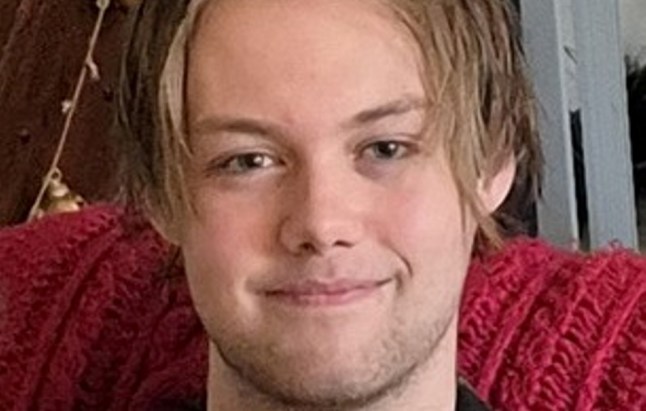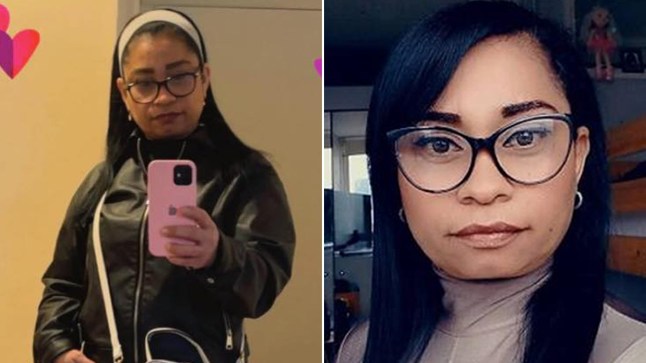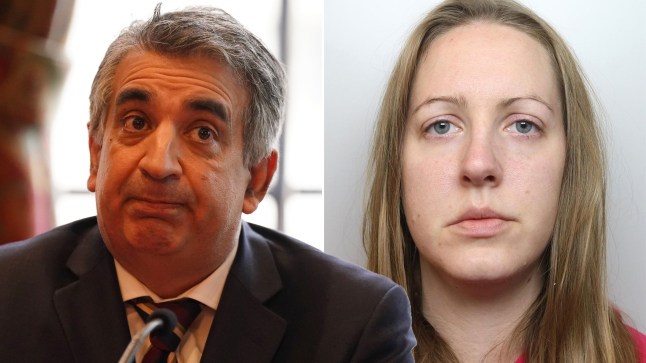
The lawyer representing child serial killer Lucy Letby has handed over ‘fresh’ medical evidence which will ‘completely demolish’ the case against her, he claims.
Mark McDonald has the full findings of a 14-strong international panel of neonatologists and paediatric specialists, who say poor medical care and natural causes were the reasons for babies collapsing at the Countess of Chester Hospital neonatal unit.
Dr Shoo Lee, leader of the panel, said there was ‘no evidence’ Letby murdered any babies, blaming death and injuries on ‘natural causes or just bad medical care’.
The barrister has handed over those findings, as well as a separate report from seven medics which claims the results of insulin tests on two infants, which a jury concluded Letby poisoned, were unreliable, to the Criminal Cases Review Commission (CCRC).
The CCRC investigates potential miscarriages of justice, and Mr McDonald says the new evidence ‘blows the case out of the water’.
He added on Thursday: ‘Today I’ve put in 23 expert reports from 24 experts from across the realm covering eight separate countries. Those expert reports completely demolish the prosecution’s case that was put before the jury.
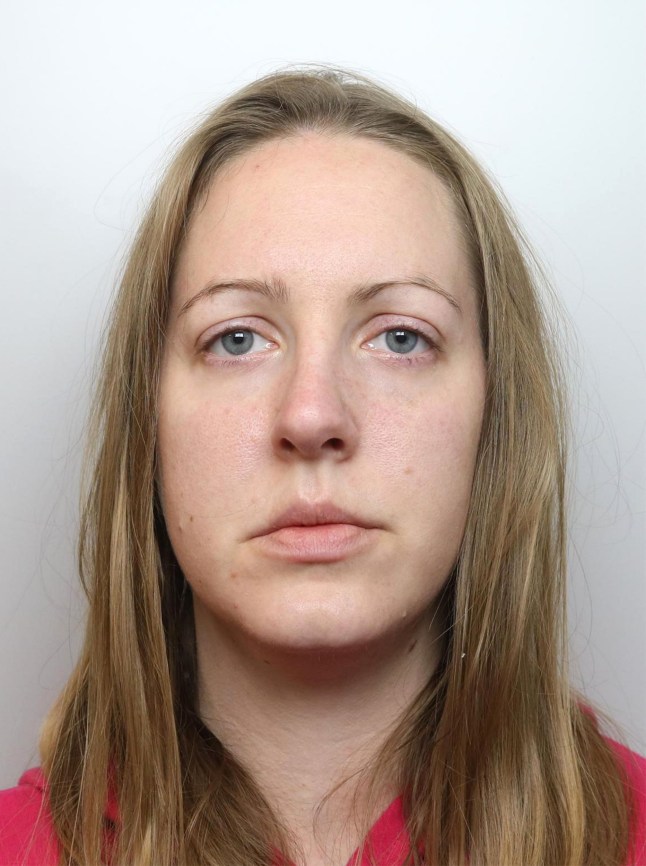
‘It is now hoped that the CCRC will not take long to look at this evidence and refer it back to the Court of Appeal.
‘These reports show that no crime was committed. This blows the case out the water.
‘I’m absolutely confident that the expert evidence that has appeared post-conviction totally undermines the safety of the conviction.
‘I’m very confident that we’re going to get back to the Court of Appeal.’
Letby, 35, from Hereford, is serving 15 whole-life orders after she was convicted across two trials at Manchester crown court of murdering seven babies and attempting to murder seven others, with two attempts on one of her victims.
Discussing the evidence, Mr McDonald added: ‘This is the largest international review of neonatal medicine ever undertaken, the results of which show Lucy Letby’s convictions are no longer safe.
‘The conclusions of the report on Babies F and L clearly demonstrate that the case must go back to the Court of Appeal as a matter of urgency.
‘I hope the CCRC will realise this and refer the case without undue delay.
To view this video please enable JavaScript, and consider upgrading to a web
browser that
supports HTML5
video
‘Lucy Letby is currently serving 15 whole-life terms in prison, when overwhelming independent expert evidence indicates that no babies were murdered.’
Letby lost two bids last year to challenge her convictions at the Court of Appeal, in May for seven murders and seven attempted murders, and in October for the attempted murder of a baby girl which she was convicted of by a different jury at a retrial.
This is despite a key witness, Dr Dewi Evans, ‘remarkably’ changing his mind about the cause of death of three babies, and the Crown Prosecution Service admitting some of the evidence used to convict Letby was ‘flawed’.
When asked how Letby is doing, Mr McDonald said: ‘I don’t talk about Lucy herself as a person but to say this: She’s read all the reports, she’s seen the reports, we have a new hope now.
‘A new hope that, in fact, the truth will come out. So yes, she has a new hope.’
International panel concludes how each baby murdered by Letby may have died
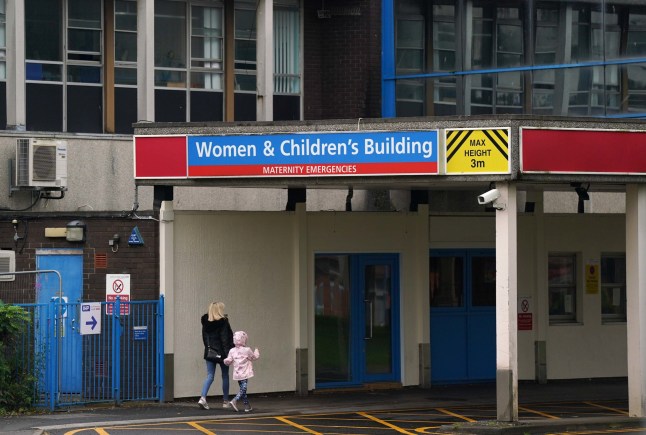
- Child A: The prosecution said the boy was murdered by an injection of air into the bloodstream which caused an air embolism where bubbles form and block the blood supply. The panel found no evidence of air embolism and said the child had died from thrombosis, where a blood clot forms in a vessel.
- Child B: The prosecution said Letby attempted to murder Child A’s twin sister by also injecting air into her bloodstream. The panel found no evidence of air embolism and said the child had collapsed from thrombosis.
- Child C: The prosecution said the boy was murdered with air forced down his feeding tube and into his stomach. The panel said the child died following ineffective resuscitation from a collapse after an ‘acute small bowel obstruction’ that went unrecognised.
- Child D: The prosecution said the girl was murdered by an injection of air into the bloodstream. The panel found no evidence of air embolism and ruled the child died of systemic sepsis, pneumonia and disseminated intravascular coagulation (blood clotting). Issues with failures to give relevant antibiotics were also identified.
- Child E: The Crown said Letby murdered the twin boy with an injection of air into the bloodstream and she also deliberately caused bleeding to the infant. The panel said there was no evidence of air embolism and bleeding was caused either by a lack of oxygen pre-birth or a congenital blood vessel condition.
- Child F: The prosecution said Letby attempted to murder Child E’s twin brother by administering insulin. The panel ruled that the child’s insulin levels and insulin/C-peptide ratio did not prove that exogenous insulin was used and were within the norm for pre-term infants. It added that there was poor medical management of the child’s prolonged hypoglycaemia.
- Child G: The prosecution said Letby attempted to murder the girl by overfeeding her with milk and forcing air down her feeding tube. The panel said there was no evidence to support air injection into the stomach or overfeeding. The infant’s vomiting and clinical deterioration was due to infection, it found.
- Child H: Jurors cleared Letby of one count of attempted murder and failed to reach a verdict on a second count. Prosecutors said the nurse sabotaged the girl’s care in some way which led to two profound oxygen desaturations. The panel said the deteriorations were due to medical mismanagement of a tension pneumothorax where air is trapped between the lung and chest wall.
- Child I: The prosecution said Letby murdered the infant by injecting air into her bloodstream and stomach. The panel said it found no evidence of air injections and that the baby died of breathing complications caused by respiratory distress syndrome and chronic lung disease.
- Child J: Jurors could not reach a verdict on an allegation of attempted murder. No specific form of harm was identified by the prosecution but they said Letby did something to cause the collapse of the girl. The panel said the deterioration was caused by sepsis and there was no evidence to support malicious airway obstruction.
- Child K: The prosecution said Letby attempted to murder the girl by deliberately dislodging her breathing tube. Among its findings the panel said there was no evidence to support a dislodged endotracheal tube (ETT) and the clinical deterioration was caused by use of an undersized ETT.
- Child L: The Crown said the nurse poisoned the boy with insulin. The panel said the infant’s insulin-related levels were within the norm for pre-term infants and there was no evidence of deliberate administration.
- Child M: Prosecutors said Letby attempted to murder Child L’s twin brother by injecting air into his bloodstream. The panel said there was no evidence of air embolism and his collapse was caused by sepsis or a heart problem.
- Child N: The Crown said the boy was the victim of attempted murder by inflicted trauma in his throat and an air injection into his bloodstream. The panel said there was no air embolism and it was likely his blood oxygen levels dropped due to his haemophilia condition or routine cares, which was ‘exacerbated’ by repeated attempts to insert a breathing tube.
- Child O: The prosecution said Letby murdered the triplet boy by injecting air into his bloodstream and inflicting trauma to his liver. The panel said he died from liver damage caused by traumatic delivery, resulting in bleeding in the abdomen and profound shock.
- Child P: Prosecutors said Letby murdered Child O’s brother by injecting him with air. The panel said there was no evidence to support that mechanism and that he died from a collapsed lung that was ‘suboptimally managed’.
- Child Q: Jurors could not reach a verdict on an allegation of attempted murder. The Crown said Letby attempted to murder the boy by injecting liquid, and possibly air, down his feeding tube. The panel said there was no evidence to support air injection into the stomach and the child deteriorated because he had early symptoms of a serious gastrointestinal problem, or sepsis.
Last month, lawyers for the families of Letby’s victims rubbished the international panel’s findings as ‘full of analytical holes’ and ‘a rehash’ of the defence case heard at trial.
Cheshire police are reviewing deaths and non-fatal collapses at the Countess of Chester and Liverpool Women’s Hospital during Letby’s time as a nurse between 2012 and 2016.
The force is also investigating her former hospital bosses for manslaughter over their decision-making.
Detective Superintendent Paul Hughes said: ‘The investigation into the actions of Lucy Letby, the trial process and medical experts continues to face scrutiny and criticism, much of it ill-informed and based on a very partial knowledge of the facts and totality of evidence presented at court and at the Court of Appeal.
‘This case has been rigorously and fairly tested through two juries and subsequently scrutinised by two sets of appeal court judges.
‘Lucy Letby’s trial was one of the longest running murder trials in British criminal history with the jury diligently carrying out their deliberations for more than 100 hours.
‘As the case unfolded, multiple medical experts, specialising in areas of paediatric radiology, paediatric pathology, haematology, paediatric neurology and paediatric endocrinology and two main medical experts (consultant paediatricians), were enlisted to ensure that we carried out as thorough an investigation as possible.
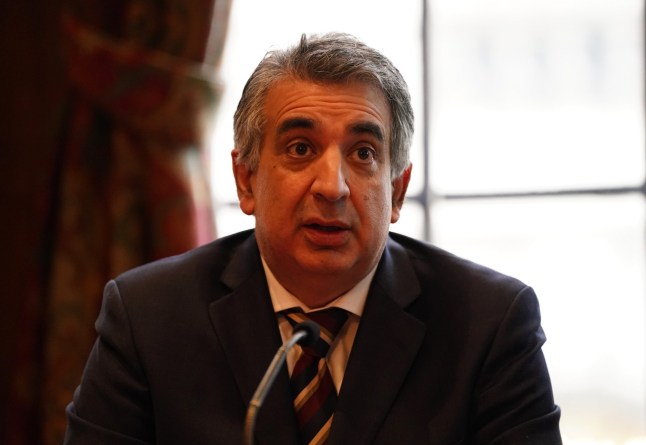
‘All are highly regarded in their area of expertise and were cross-examined whilst giving their evidence in court.
‘The details of the case are clear and have been widely reported on.
‘It is out of a deep sense of respect for the parents of the babies that we have not and will not get drawn into the widespread commentary and speculation online and in the media.
‘They have suffered greatly and continue to do so as this case plays out in a very public forum.
‘Cheshire Constabulary is ready to support the CCRC and any appropriate review processes in order to inform any questions that may arise.’
Get in touch with our news team by emailing us at webnews@metro.co.uk.
For more stories like this, check our news page.
